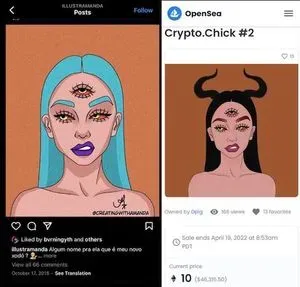Panic erupted on February 19 as a few users saw their wallets emptied of valuable NFTs without knowing why, and many others feared the same could happen to them. Early explanations blamed a new contract that OpenSea had rolled out, or an airdrop from a new NFT marketplace called X2Y2. People urged NFT owners to revoke permissions for both the OpenSea contract and for X2Y2 until more was known, although one of the most popular websites helping people do so went down shortly after from the high traffic.An hour and a half after users began to report missing NFTs, OpenSea finally acknowledged the issue. They tweeted that they were "actively investigating rumors of an exploit associated with OpenSea related smart contracts", and wrote that they believed it was a phishing attack coming from outside of OpenSea, rather than an issue with their contract. It was later determined that an attacker had successfully phished 17 OpenSea users into signing a malicious contract, which allowed the attacker to take the NFTs and then flip them. Bizarrely, the hacker returned some of the NFTs to their original owners, and one victim inexplicably received 50 ETH ($130,000) from the attacker as well as some of his stolen NFTs back. The attacker later transferred 1,115 ETH obtained from the attack to a cryptocurrency tumbler, worth around $2.9 million.








